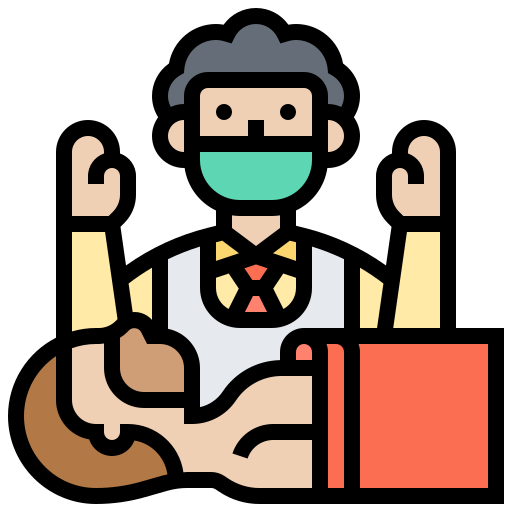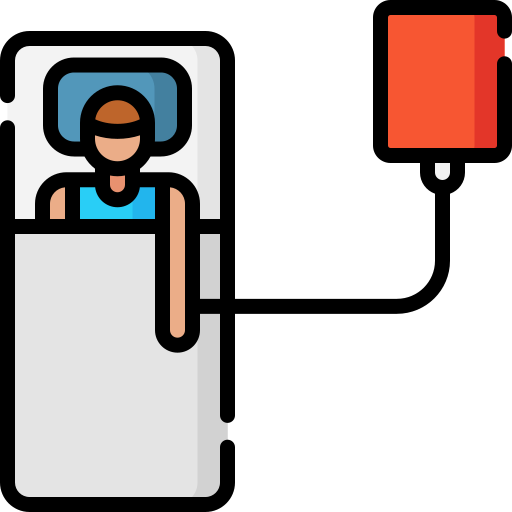PART A_1
Let’s introduce ourselves to each other.
PART A_2
My name is ________________. What is your name?
PART A_3
I am ________________. Nice to meet you.
PART A_4
Nice to meet you too, ________________. Does music help brain performance?
PART A_5
PART A_6
I see. Now, let’s begin our lesson!
PART B_1
We will read aloud the words and expressions below. Please repeat after me.
I will check your pronunciation.
I will check your pronunciation.
(Please send the mispronounced words and expressions to your student.)
PART B_2

|
surgery
手術
|

|
experiment
実験
|

|
vaccination
予防接種
|

|
recovery
回復
|

|
cure
治療する
|
PART B_3
Now, let’s review some words from part B_2.
(Please review the mispronounced words and expressions from part B_2.)
PART B_4
PART C_1
We will read aloud the sentences below. I will check your pronunciation and intonation.
(Please send the mispronounced words and expressions to your student.)
PART C_2
| 1. | She’s out of surgery but she still has to take painkillers. |
| 2. | If the transplant were successful, she would be happy to see her grandchildren today. |
| 3. | If I were you, I would say yes to the brain operation because I really want to live longer. |
| 4. | One of the abilities of the brain is to gain knowledge and understanding. |
| 5. | The brains of monkeys are being studied to treat human brain disorders. |
| 6. | What comes to mind when you hear the word “seizure”? |
| 7. | People with brain disorders often experience constant headaches. |
| 8. | One of the side-effects of eating junk food is learning problems. |
PART C_3
Now, let’s review some words and expressions from part C_2.
(Please review the mispronounced words and expressions from part C_2.)
PART C_4
PART D_1
Let’s do a role play with the given situations. You should mention the items below during the conversation.
PART D_2
| Situation 1: |
You will ask your friend’s opinion about what kinds of food and activities develop our brains.
(Your tutor will pretend to be your friend.)
|
| Items: |
– What kinds of food develop our brains – What activities develop our brains – What he/she does to develop his/her brain |
PART D_3
| Situation 2: |
You will ask your friend’s opinion about this saying “If you put 10,000 hours into something. you will become an expert.”
(Your tutor will pretend to be your friend.)
|
| Items: |
– What opinion he/she has about it – What he/she is good at – How he/she became good at it |
PART D_4
| Situation 3: |
You will ask your friend’s opinion about a topic below.
(Your tutor will pretend to be your friend.)
|
| Items: |
– When he/she sees someone being treated unfairly, does he/she usually keep away or he/she does something – If this situation already happened to him/her – What he/she would do if he/she was being treated unfairly |
PART D_5
| Situation 4: |
You will ask your friend’s opinion about making a difficult decision.
(Your tutor will pretend to be your friend.)
|
| Items: |
– If he/she decides quickly or it takes a long time – How long he/she needs to decide on something – How he/she decides (logically or based on how he/she feels) |
PART D_6
| Situation 5: |
You are at school. You will explain which is more important to you, being born a genius or working hard by using the picture below.
(Your tutor will pretend to be classmate.)
|
| Items: |

|
PART D_7
Now, let’s review your answers.
(Please review your student’s answers by sending the correct answers in complete sentences. After that, ask your student to read aloud his or her corrected answers.)
PART D_8
PART E_1
Let’s do a free talk.
(Please do a free talk if you have time left.)
PART E_2
In your view, are the brains of ordinary people different from geniuses?
PART E_3